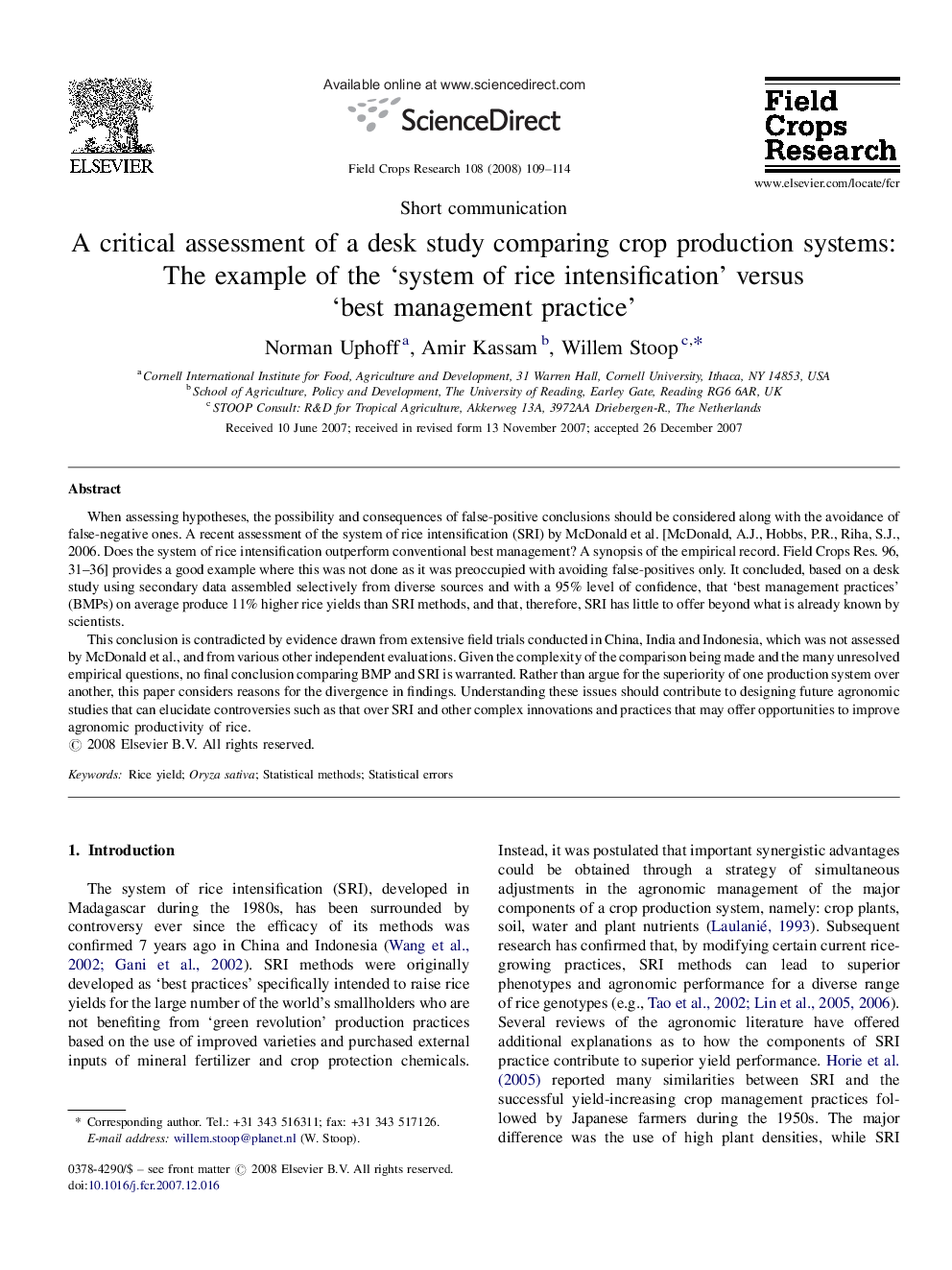| Article ID | Journal | Published Year | Pages | File Type |
|---|---|---|---|---|
| 4511439 | Field Crops Research | 2008 | 6 Pages |
When assessing hypotheses, the possibility and consequences of false-positive conclusions should be considered along with the avoidance of false-negative ones. A recent assessment of the system of rice intensification (SRI) by McDonald et al. [McDonald, A.J., Hobbs, P.R., Riha, S.J., 2006. Does the system of rice intensification outperform conventional best management? A synopsis of the empirical record. Field Crops Res. 96, 31–36] provides a good example where this was not done as it was preoccupied with avoiding false-positives only. It concluded, based on a desk study using secondary data assembled selectively from diverse sources and with a 95% level of confidence, that ‘best management practices’ (BMPs) on average produce 11% higher rice yields than SRI methods, and that, therefore, SRI has little to offer beyond what is already known by scientists.This conclusion is contradicted by evidence drawn from extensive field trials conducted in China, India and Indonesia, which was not assessed by McDonald et al., and from various other independent evaluations. Given the complexity of the comparison being made and the many unresolved empirical questions, no final conclusion comparing BMP and SRI is warranted. Rather than argue for the superiority of one production system over another, this paper considers reasons for the divergence in findings. Understanding these issues should contribute to designing future agronomic studies that can elucidate controversies such as that over SRI and other complex innovations and practices that may offer opportunities to improve agronomic productivity of rice.
